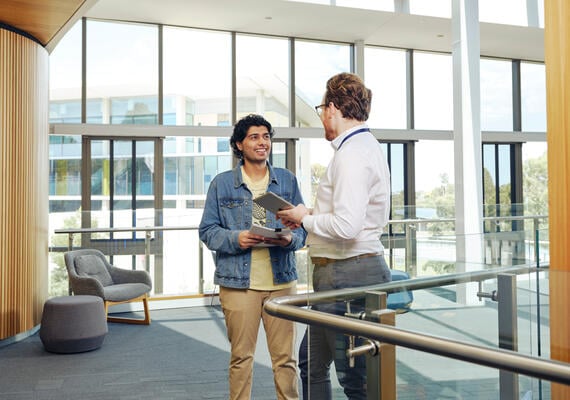
Partner with us
Embark on a transformative learning journey with Connect Research and Training Initiative. We empower practitioners, organisations, service providers and community members to cultivate safer and more resilient communities.
Our research encompasses fields including psychological, criminological, neurodevelopmental, biological, sociopolitical, commercial and clinical aspects of behaviour. Together, we address pressing safety issues by identifying community needs, defining problems clearly, engaging in co-design for innovative solutions, testing them rigorously, and demonstrating their reliability and scalability. Our coalition of researchers ensures that research is translated into real-world solutions to:
With a wealth of experience in federal and state-funded research, as well as a range of grants, funding and support programs, our specialists are at the forefront of investigating the impacts of trauma, shame, maltreatment and aggression across individual lives and broader systems.
Research that investigates the impacts of trauma and shame on individuals, as well as families, community, schools and public services, the group reviews and evaluates applications of trauma-informed and shame-sensitive practices across a range of health and harm-related outcomes.
Co-directors: Professor Peter Miller and Dr Hannah Bereznicki
Focusing on the prevention of, interventions for, and responses to, experiences of interpersonal violence and harmful behaviour in vulnerable populations. The group addresses factors that influence interpersonal relationship conflict and harm.
Director: Dr Ashlee Curtis
The centre conducts research into the clinical, psychological and sociopolitical aspects of alcohol and other drug use, and other addictive behaviours, such as gambling and gaming problems. It aims to understand the harms from addictive behaviours to inform evidence-based policy, prevention and treatment interventions, as well as providing service to the community.
Co-directors: Professor Nicki Dowling and Associate Professor Petra Staiger
Using established and cutting-edge methodological approaches, Science of Adult Relationships Laboratory's research targets a wide variety of contexts, including important life events, transitions and emerging social issues that can impact on relationships.
Director: Professor Gery Karantzas; Deputy Director: Dr Emma Marshall
Focusing on large scale, multi-site projects that measure individual level pathways through the health and justice systems on a number of outcomes and population level changes, due to the implementation of government policy. Complex modelling approaches are used to assess the real-world impacts of a range of topics, including alcohol policy and regulation, suicide prevention and violent reoffending.
Co-directors: Dr Kerri Coomber and Dr Dominique De Andrade
Are you driven by a desire to confront significant health and community issues while enhancing the mental wellbeing and resilience of our communities, particularly our most vulnerable? Become a dedicated PhD candidate and contribute to cutting-edge research that makes a real difference.

Embark on a transformative learning journey with Connect Research and Training Initiative. We empower practitioners, organisations, service providers and community members to cultivate safer and more resilient communities.
Led by our co-directors, the Connect Research and Training Initiative brings together the expertise of 38 researchers who use innovative approaches to advancing understandings trauma, shame, addiction and anti-social behaviours.
Professor Peter Miller is Professor of Violence Prevention and Addiction studies and co-leads the The impact of trauma and shame research stream, and leads the Policy, evaluation and monitoring group within CEDAAR.
Professor Gery Karantzas is the Director of the SoAR Laboratory and a member of the Centre for Health and Risk Behaviours and Mental Wellbeing. His research interests centre around close personal relationships and personal and social development.
Our team is here to answer your questions and help you learn more about the Connect Research and Training Initiative.